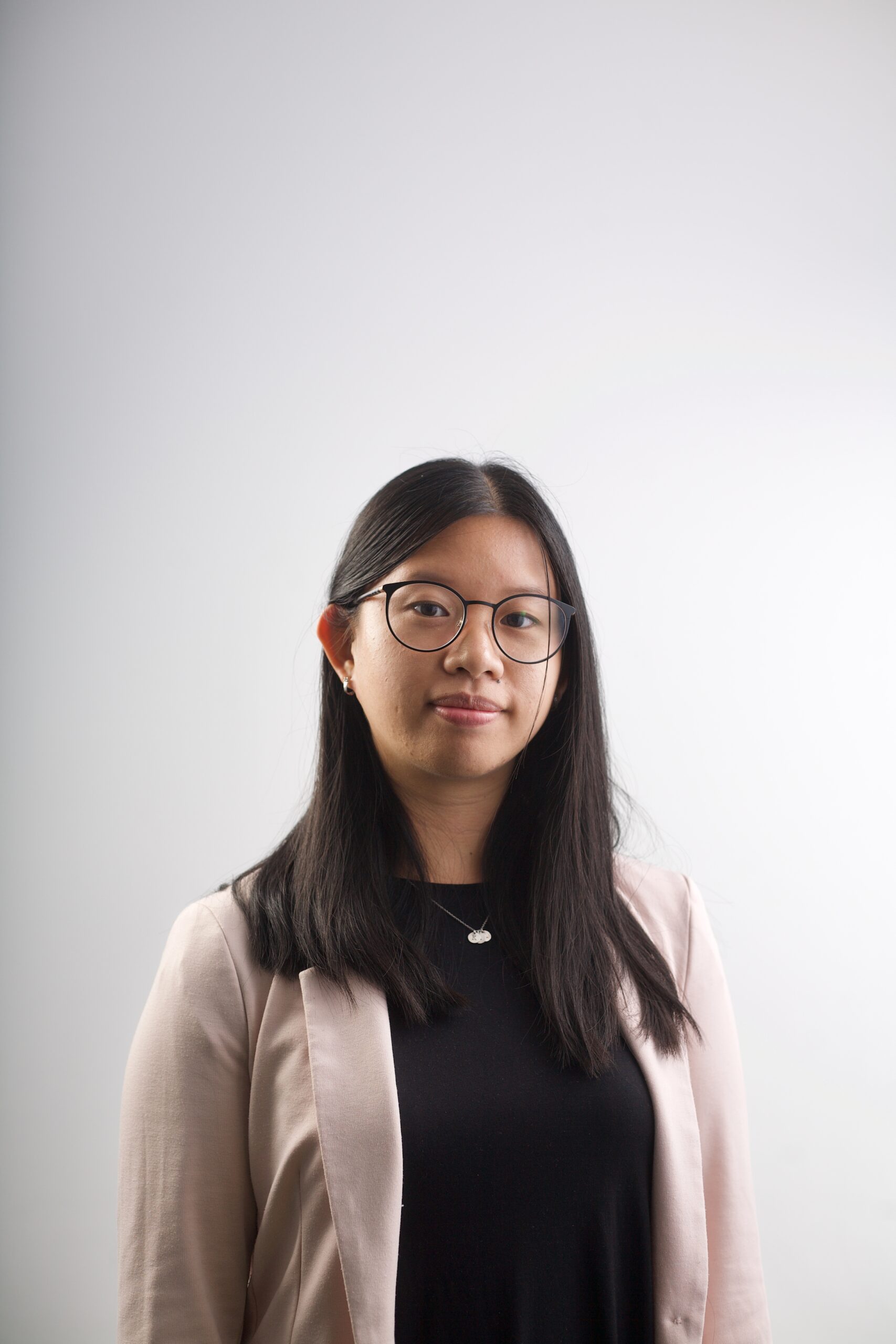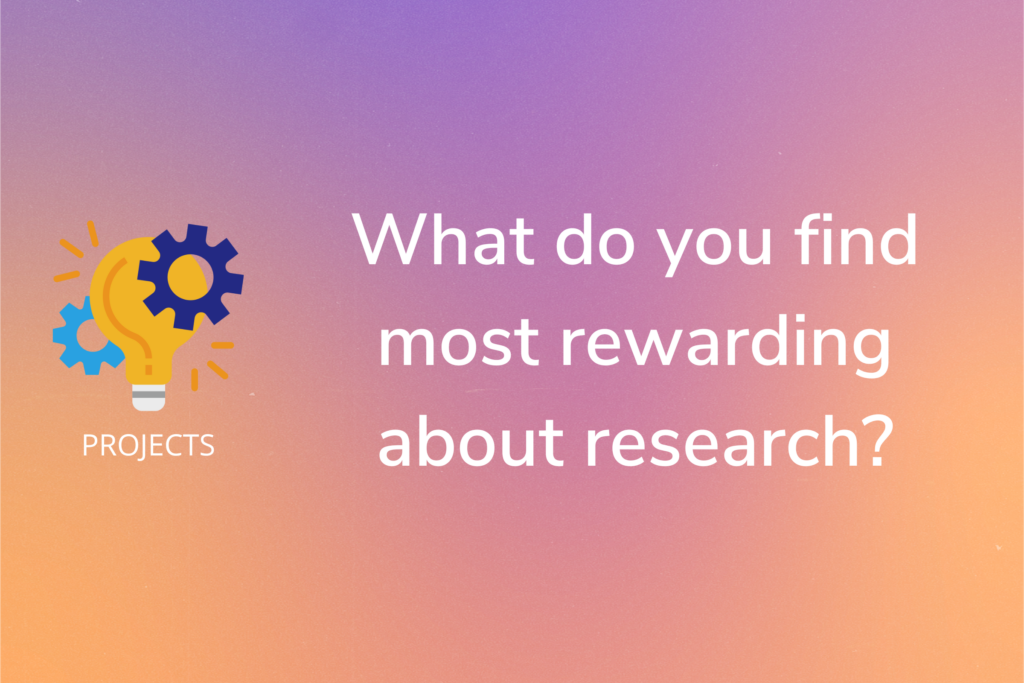Whenever I have conversations with friends or family and I have to explain what exactly I am doing right now (doing a doctoral degree), a typical response to that is always “Wow, respect for studying so much. Why would you want to stay in school that long?”1
I sensed an implicit need to defend myself, as this decision does not seem to be common, or seen as an option that might be beneficial or “nice”. How should I address this?
According to EU statistics from 2018, around 17 thousand people were studying for a doctoral or equivalent degree in Europe. Given this number, I suppose a lot of them have finished their degrees by now, and some continue on being in research. That means: I have a big pool of people I can ask to help me answer the important question:why do we decide to “stay in school” and do research for such a long time?
So, as I have done previously, I decided to sit down for another conversation with another researcher. This time it’s with Dr. Agnieszka Pietraszkiewicz, also known as Aga, who is a post-doctoral researcher at the University of Bern.
She started studying the topic of emotions, social cognition, and emotional reactions to others’ successes and failures for her Master’s thesis, and decided to continue with it in her PhD. She finished both degrees in Warsaw, Poland (at the University of Social Sciences and Humanities). Afterwards, she found the post-doctoral position in Switzerland (University of Bern), and that’s where she is now, studying gender stereotypes and language.
Other options and informed decision
Aga and I went through the story of how she got into her current post-doctoral position. She shared that she had worked in a big telecom company after her master’s, where she did market research and was responsible for organizing marketing campaigns, and even got several job offers directly after she finished her PhD.
After hearing this, I wondered about how this whole experience shaped her career path. How did she decide to be a researcher at a university, given her extensive experience in the industry, and the option to explore a different direction?
Aga told me that looking back, she just realized that she valued those experiences. Through them, she got to know how ‘the other world’ looks like and what it feels to not stay in academia. Her experience in the industry actually helped her to realize that research is what she liked more, and it is what she wanted to continue doing.
But why? What is so rewarding to be a researcher?
She gave me a long list.
The international opportunities and everything that comes with it: experiencing working abroad, meeting nice, well-educated people who are inspiring as well as the flexibility of the work- time-wise, and the autonomy you get to decide how your day should look like. And most importantly: working in academia means you get to investigate questions in fields that are most likely impossible to do in the real world but are very interesting!
Moreover, she shared that through the years in academia, she learnt how important it is to build connections with the right network of people, to always improve yourself (e.g., grow in your skills in statistical programming to have an advantage if you are doing quantitative work), and to find good collaborators. She also advised me to make sure I develop these skills that she listed.
I couldn’t help but agree. Apparently, these points are big enough to be the reasons that brought her along this far. That is somewhat encouraging for me.
What about the struggles?
At the same time, I do know that having a career in academia is never easy. I also mentioned in my previous post of how there are obstacles that you can’t predict, no matter which direction you go.
Aga openly shared with me that indeed, the journey was far from easy for her as well. So I asked her about what parts were the most challenging when it comes to working in academia.
First, she told me that in academia, writing is always difficult. It takes a long time, you have to deal with rejections, and at the point where you eventually publish them, the data is already old! It’s different from working in the industry or in an institute where you can see how your work impacts decisions much more quickly.
Next, as she reflected on being a post-doctoral researcher, she mentioned that the position comes with the challenge of insecurity: getting a permanent position is not easy. It is always a big competition – you have to make sure that you have a competitive CV with broad experiences and extensive publications, showing that you have applied and earned grants under your own name, and/or you have effective collaborations. These are no small tasks!
In addition, being a woman in academia also comes with a lot of challenges. Family obligations can “stop” your career, or “slow it down”. Also, even though she never experienced harassment because of her gender, she has heard such cases a lot around her. In the end, “it is still a men’s world.”, she said. Somehow, men hold the majority of professorship, which reflects slimmer chances for women researchers’ career advancement. Although in social/gender studies the gap is most likely not as drastic, but it is still part of the reality.
And how did she overcome these obstacles?
“Politics might be the thing that decides [your next steps], but you can do your best and stay focused. Develop yourself as much as possible and be open for new opportunities. Go abroad, meet new potential supervisors, meet new people…” and “do your best to become the best version of yourself.”
In the end, she highlighted: “It is important to find joy in your work.”
Our short conversation brought into light glimpses of the reality: the decision to stay in academia was not an easy decision. A lot of factors, including our gender and experiences, might impact the decision in very different ways and there is a lot of uncertainty involved. Yet, she told me confidently that she would definitely like to stay in academia because she enjoys it. “Be enthusiastic, do what you like, and don’t spend lots of time doing things that are not so interesting for you!”
Apparently, the process itself was and is more than rewarding for her, and it brings her a lot of joy. And this conversation helped me to realize that perhaps, it is important to ask yourself: do you enjoy the journey? instead of focusing just on a destination. And perhaps, like Aga one day, I would be able to look back and realize how rewarding my experiences are, and confidently tell others the long list of things I do find very enjoyable, whether from the doctoral degree that I am going through right now, or in a different situation.Thank you, Aga, for sharing this with me and with us. If you’re interested in further conversations with her and her research, you can reach her here!
1 Not everyone states the “respect” part, unfortunately, just straight to the question of why we’d do research.

Gendered pathways to professional life (Finland)

Your post highlights the significance of collaboration and the sense of accomplishment that comes with research projects. It resonates with my own experiences, and I appreciate the emphasis on the learning journey and personal growth that research can offer.
I look forward to reading more of your thought-provoking content in the future. Keep up the great work!